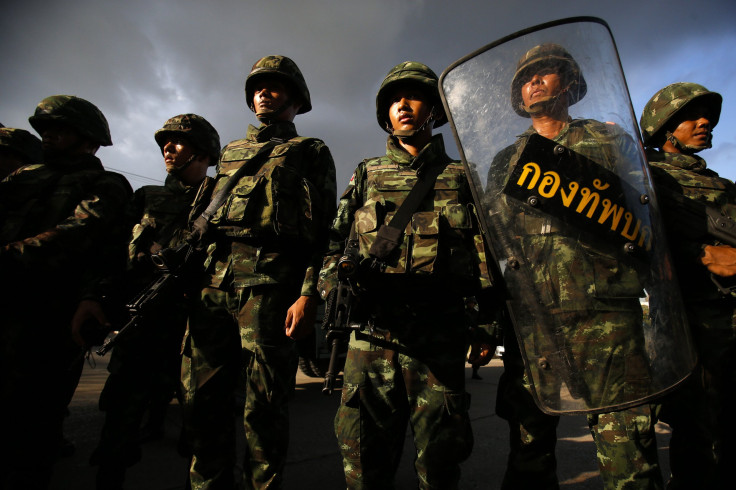Economists Say Markets Stable Following Thai Military Coup, But Not For Long

Economists say the Thai military coup may not bode well for the country's long-term economic prospects and lucrative tourism industry, but it could help stabilize the markets, at least for now.
“The coup reduces uncertainty about the immediate outlook and, in particular, the possibility that the political standoff would turn much more violent,” Mark Williams, chief Asia economist at Capital Economics, wrote in a note on Thursday. “For these reasons it could actually be positive for both Thailand’s economy and financial markets in the near term."
After six months of political gridlock, including the dissolution of parliament in December and increasingly violent street protests, Army General Prayuth Chan-Ocha announced on Thursday that the army had seized power “to bring the situation back to normal quickly” and “reform the political structure, the economy and the society,” according to the New York Times.
The Thai economy is already under strain. Thailand’s first-quarter gross domestic product, or GDP, contracted 0.6 percent from a year earlier, as the National Economic and Social Development Board reported on Monday.
But following Prayuth’s announcement on Thursday, the Thai baht weakened just 0.3 percent against the dollar, which Williams wrote was due to the possibility of the country achieving relative stability, though the long-term outlook isn’t as bright.
“The imposition of martial law in effect implies that a properly functioning government does not look imminent, thus highlighting the continued vulnerability of the economy,” economic analysts from Nomura wrote in a note on Thursday, in which they reiterated a weak GDP growth forecast of 1.1 percent.
“The situation remains fluid,” they wrote, adding that the recent events will only add to an already weak growth outlook, “which has suffered due to a lack of government spending on much needed infrastructure, as well as weakening private sector sentiment, and is likely to remain weak.”
“Prayuth’s move was unexpectedly severe, effectively tearing up a constitution he helped to write in 2007,” Christian Lewis and Shaun Levine, Asia analysts at the Eurasia Group, wrote in a note on Thursday.
They expect to see a strong backlash from protesters, which will likely raise chances of further street violence as Prayuth cracks down.
“It will be several days before governance plans materialize, as street-level security under martial law will remain the top concern," they wrote. But we don’t see last night’s coup as marking the end to a period of political instability.
© Copyright IBTimes 2024. All rights reserved.






















